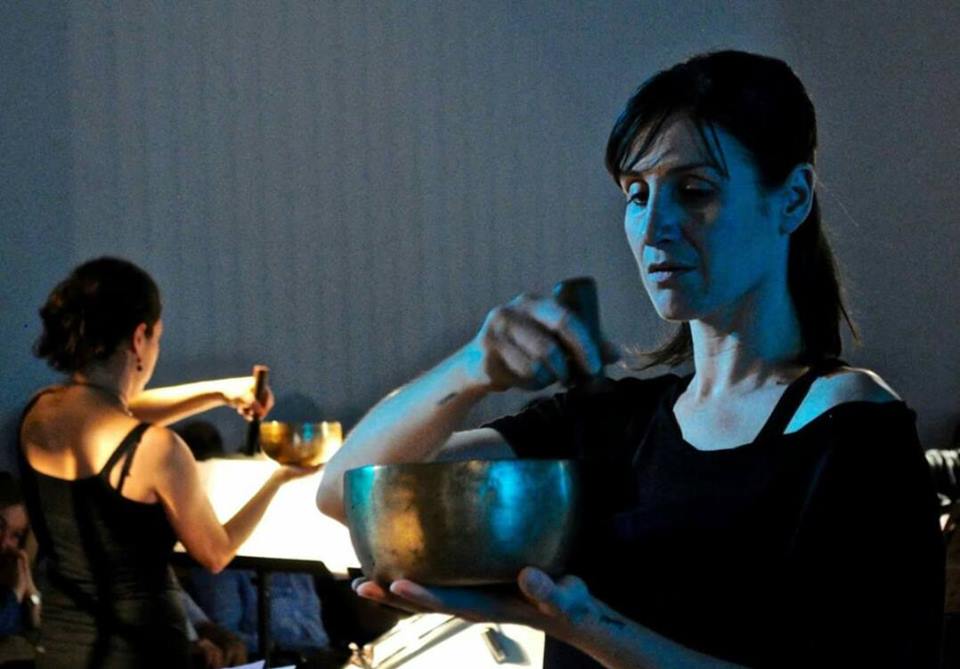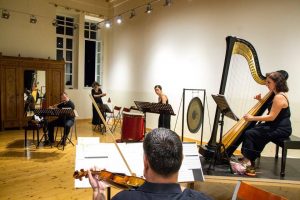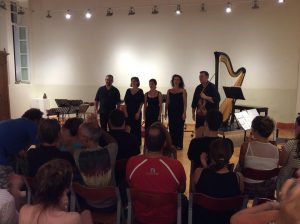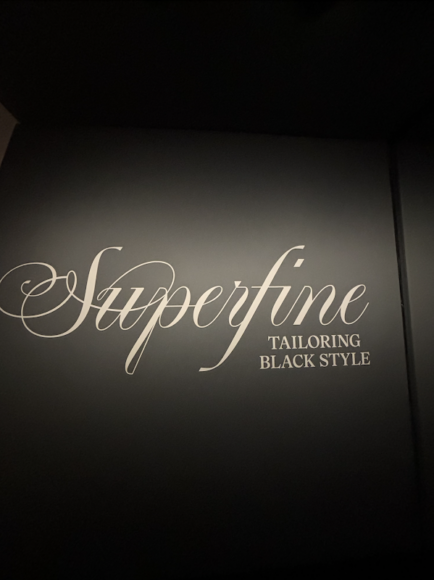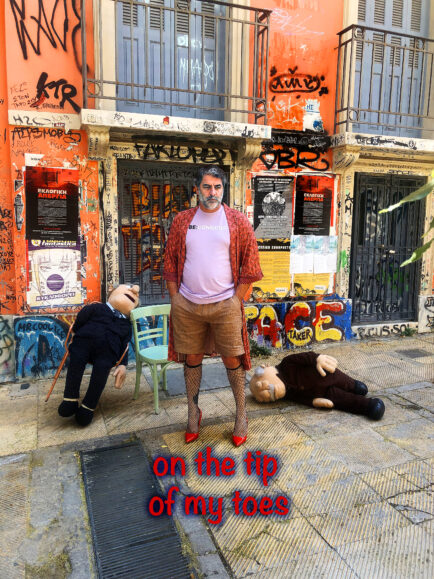Why your preference to present the Ψ rhapsody of Odyssey
The Ψ rhapsody of the Odyssey is the penultimate rhapsody of Homer’s masterpiece. It is the rhapsody where Penelope tests and finally recognises Odysseus and reunites with him after twenty years of absence. For me the intriguing element of the particular rhapsody goes beyond the actual characters of Penelope and Odysseus and expands to every woman’s – or man’s – inner battle when facing the possibility of reuniting with a partner after a long period of separation. So, the question that I attempt to pose through “La Ligne Invisible”, is not whether Penelope can recognise Odysseus or not, but whether she actually wants to recognise him after so many years of not being present in their relationship. In other words, the Ψ rhapsody is a departure point from which a journey into the unconscious of Penelope – any Penelope – is unravelled, and where every dialogue she exchanges with other people in her surroundings – including Ulysses – are in a dialogue with herself.
Do you believe that Odysseus could potentially be the first male feminist
I cannot say for sure whether Odysseus was the first male feminist, but I can say in all certainty that he was a feminist indeed. This is first of all verified just by his attitude and behaviour towards Penelope, where it is very evident that he treats her as equal, with respect and admiration, constantly acknowledging her strong personality and those character traits of hers that denote a true leader. Furthermore, however, Odysseus exhibits a feministic behavioural approach to other women that he meets during his journey to Ithaca – Calypso, Circe, Nausika, just to name a few. Interestingly, all the aforementioned women are very strong personalities, beautiful, elegant, intelligent, self confident and… with the right amount of dominating and manipulative skills! Now that I think about it, Homer was more feminist than Odysseus, since he was the one to attribute all these powerful characteristics to his female heroines.

Do you believe in distance relationship
No, I do not, I am afraid of. With a few exceptions, it is very difficult to sustain a long relationship when there is a geographical distance involved – let alone emotional distance! Physical presence is very essential in my opinion in order to sustain a relationship. To put it in very simple everyday terms, when you need a hug, a kiss, the warmth of one’s physical presence next to you on a sofa or in bed, skype will eventually not be enough.
Using one of Penelope’s dream from another rhapsody I suppose it happens not accidentally ,does it help the plot?
The dream I used from the rhapsody preceding rhapsody Ψ is the last dream that Penelope dreams before meeting and finally recognising Odysseus. This dream is very important not just for the plot but for the overall observation and analysis of Penelope’s psychological and emotional state before confronting Odysseus in rhapsody Ψ. In this dream one can detect that Penelope might as well have been quite content and satisfied with the life she had built in the twenty years of Ulysses’s absence. The dream describes a certain equilibrium in which Penelope lives under her own terms and also a fear on Odysseus’s behalf of her that this equilibrium might be easily destroyed by Odysseus’s reappearance. So, I used the dream to intensify the element of Penelope’s inner struggle.
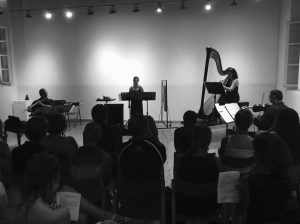
Paxos could be one of the adventurous island of Odysseus when trying to return to homeland
Yes, Paxos, could definitely be one of the adventurous islands that Odysseus visited while going back to Ithaca. Interestingly, one can find in the internet articles that claim that Homer’s Ithaca is not actually Ithaca but Paxos! Of course, these type of claims are not scientifically valid, but if someone visits Paxos, they soon realise that this exquisitely beautiful tiny Ionian island can easily be one’s own contemporary “Ithaca”. This definitely happened to me when I first visited Paxos in 2013 and it still continues being my own personal “Ithaca” for four years now.
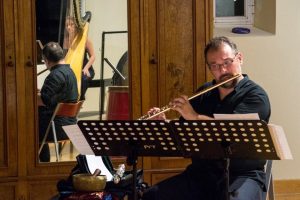
The performance would not have been possible without the excellent performers who honoured me with their participation and whom I deeply thank for their wonderful work and devotion: Nikos
Nikopoulos (flute/narration), Gogo Xagara (harp/narration), Mary Randou (movement/narration), and Panagiotis Tziotis (violin/narration). It has been a great joy collaborating with them not only as a composer but as a percussion performer as well.
On that front I would like to also add that a crucial element of the performance was the use of five Tibetan Singing Bowls, Asian percussion instruments that are primarily used in meditation, but in my performance they served as the sonic “vehicle” to Penelope’s meditational diving into her unconscious.
 Me and the team at the backyard of the school in Lakka that the event presented. 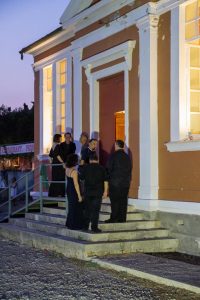 The very next perfomance will take place at the Papaioannou’s Festival on September 9 in Kavala.
|
|
|










